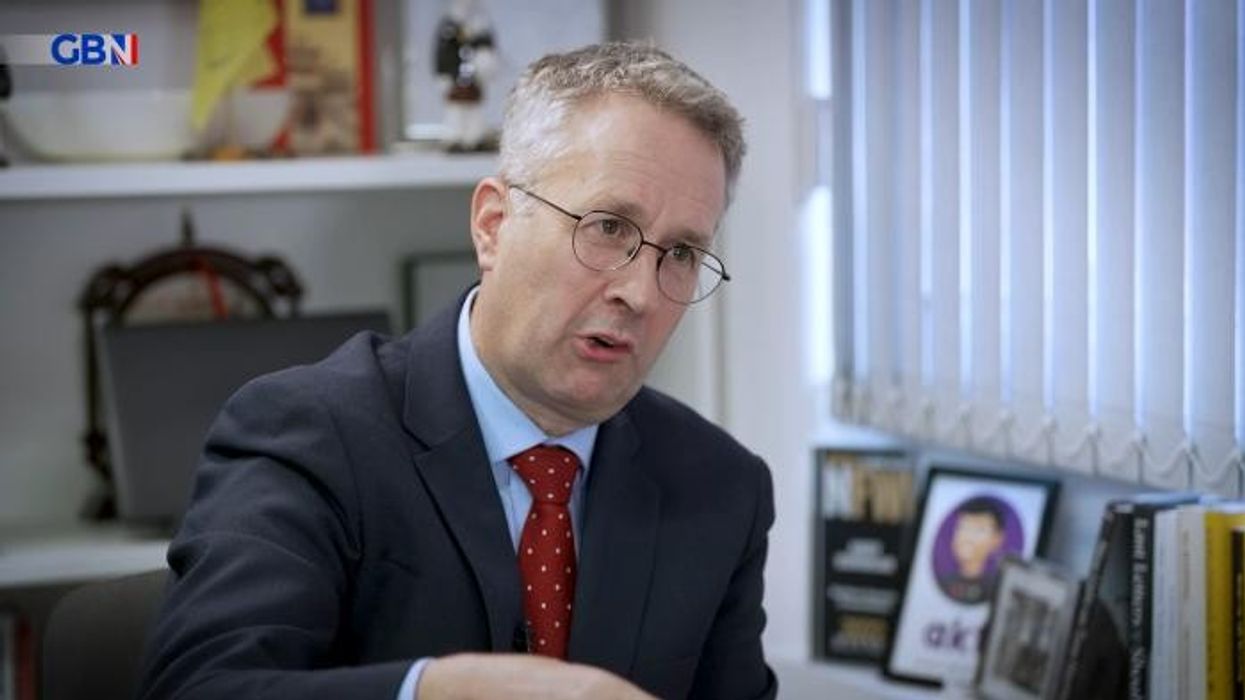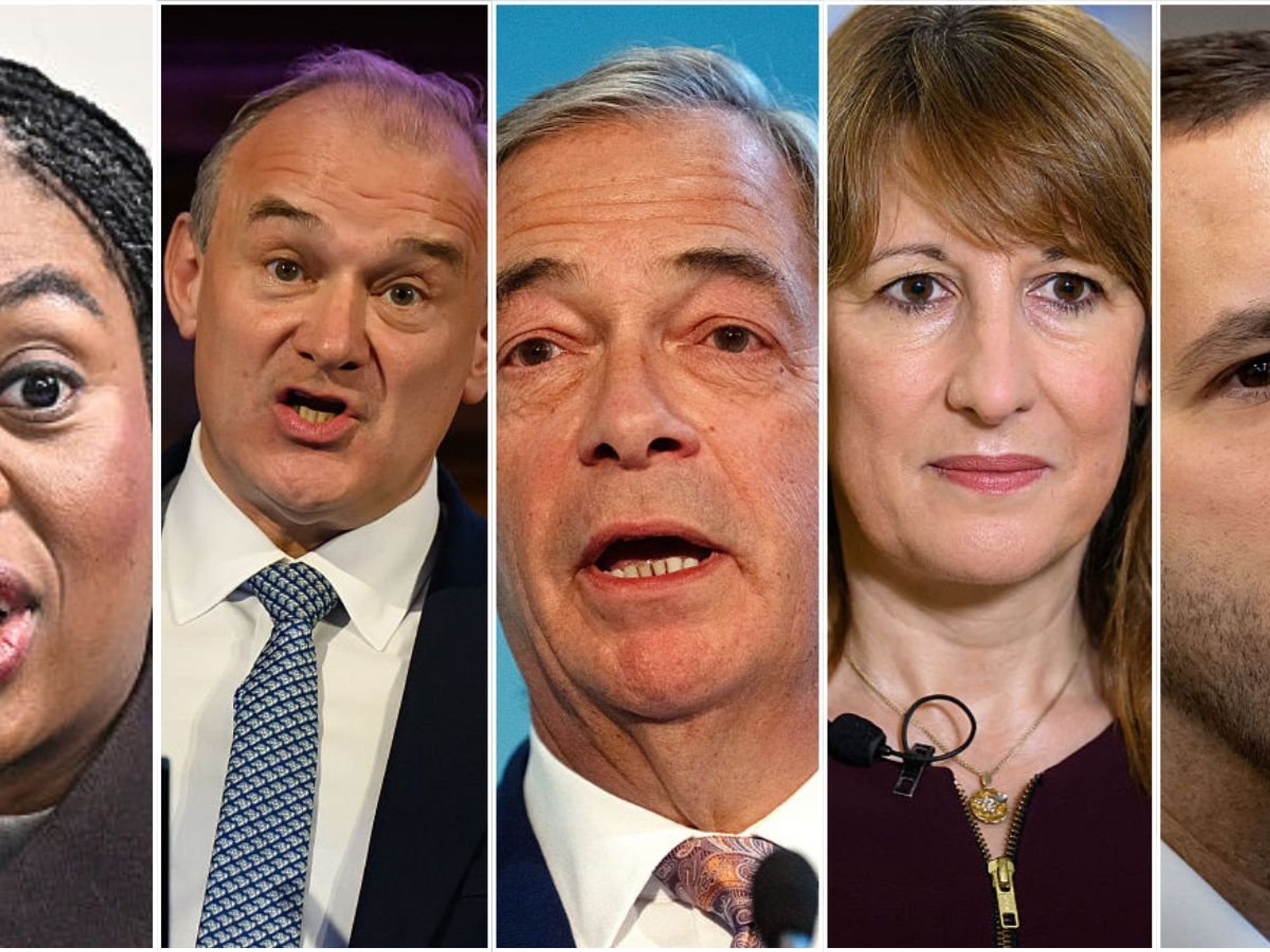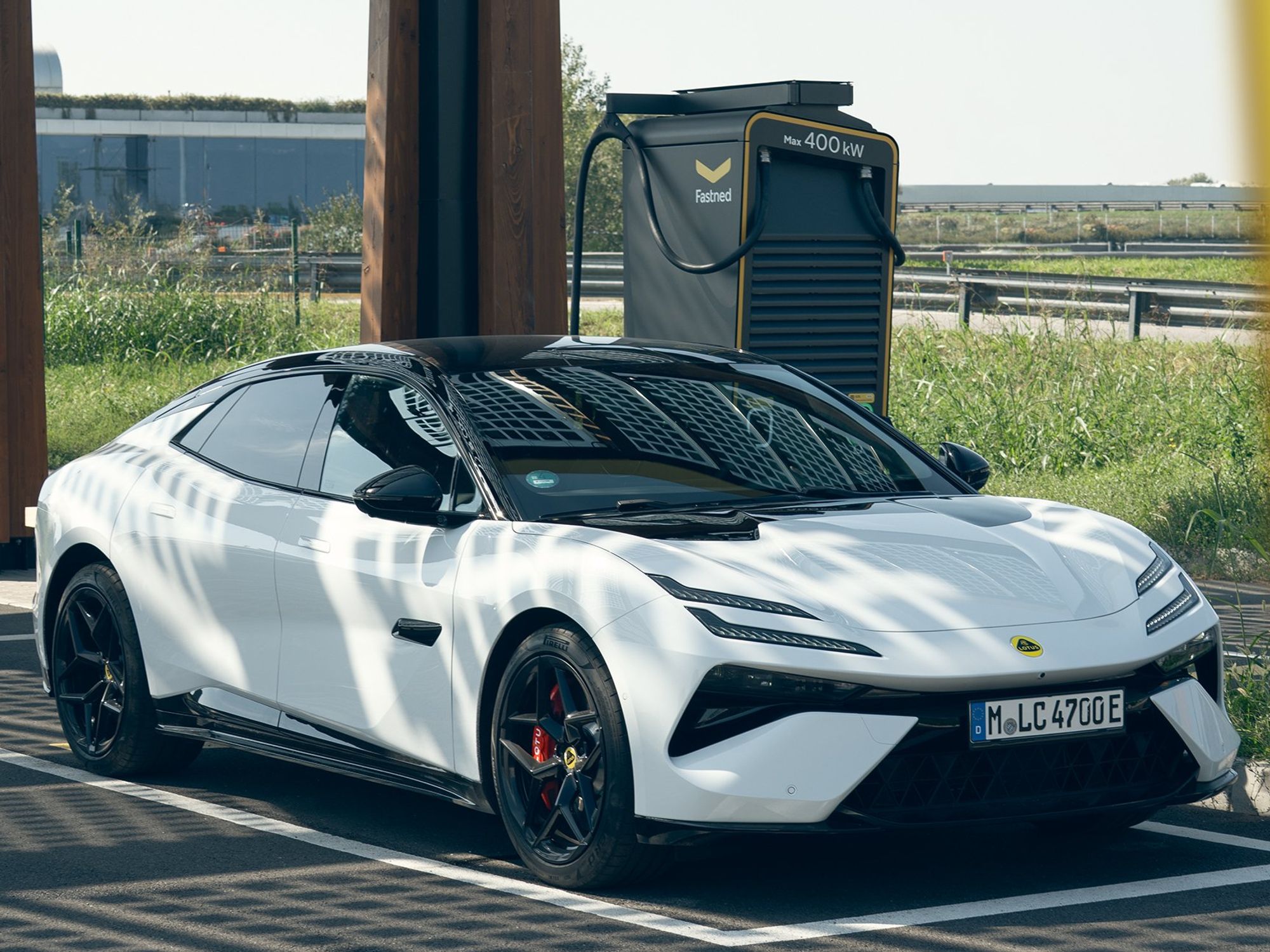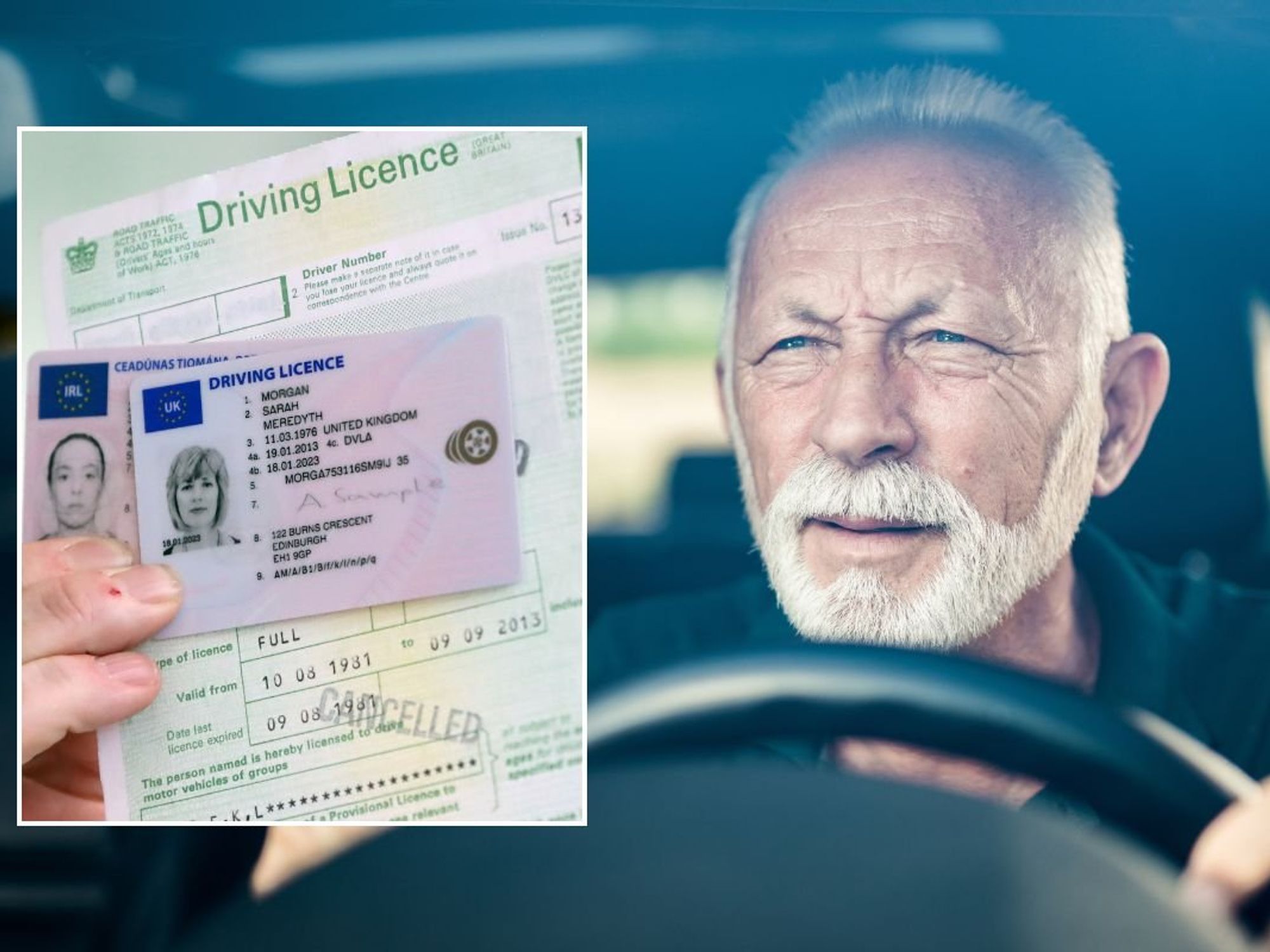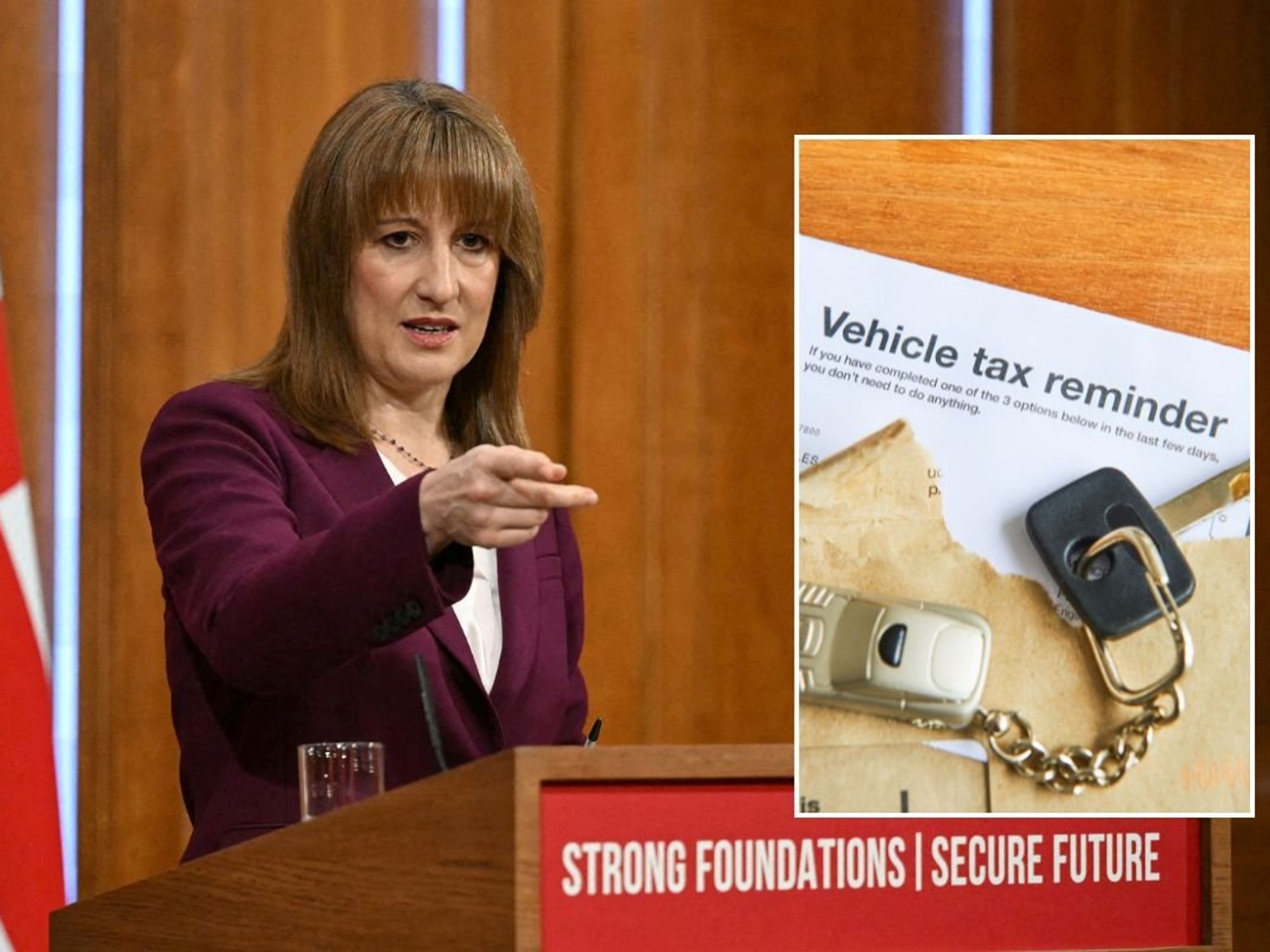Drivers spared daily costs as petrol and diesel car emissions fall faster without Clean Air Zone

Local councils have started taking down Clean Air Zone signs across the region
Don't Miss
Most Read
Experts have highlighted how a Clean Air Zone in Manchester would not have been as effective as other measures introduced by Mayor Andy Burnham.
New research has shown that air pollution across Greater Manchester dropped in 2024 following an investment-led approach, as it rejected the introduction of a Clean Air Zone.
In 2018, 129 places across the region had illegal levels of nitrogen dioxide, which dropped to 64 in 2023 and fell further to just 38 last year.
One of the largest contributors to the fall in air pollution was the rollout of the Bee Network and its electric buses.
Do you have a story you'd like to share? Get in touch by emailing motoring@gbnews.uk
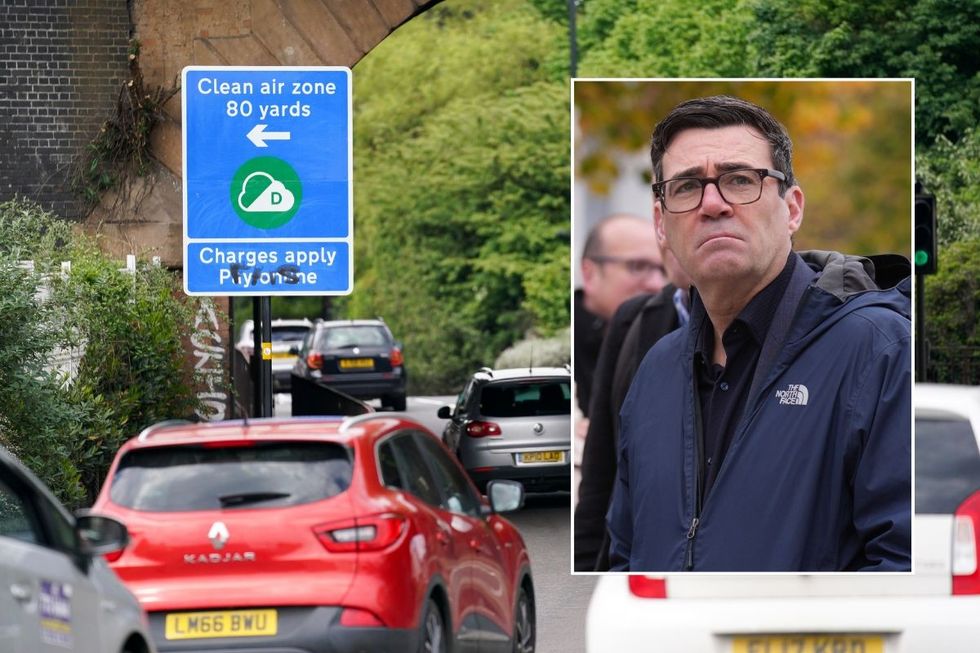
Data has shown that air quality is improving in Greater Manchester after it axed Clean Air Zone plans
|PA
There are more than 300 electric buses across Greater Manchester, a tenfold increase compared to when Bee Network took control of public transport in the city.
Clean Air Greater Manchester has confirmed that all buses in the region will be electric by the end of the decade, which is being backed by £2.5billion in Government funding for transport.
Transport for Greater Manchester (TfGM) has worked to develop its electric bus network, including installing more chargers at depots in Bolton, Manchester and Oldham.
Councillor Eamonn O'Brien, Leader of Bury Council and Clean Air lead for Greater Manchester, said: "We've always been focused on doing what’s right for Greater Manchester, and by accelerating investment in our public transport network, we're showing that it's possible to improve air quality faster than if a charging Clean Air Zone had been introduced.
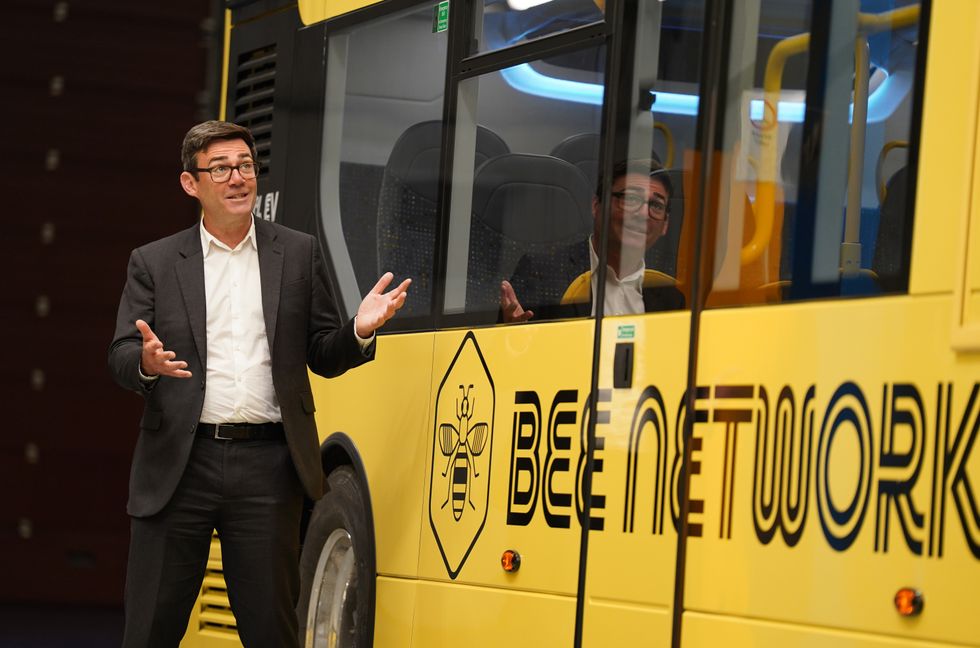
Andy Burnham oversaw the launch of Bee Network electric buses
| PA"Investment in the Bee Network is enabling more people to choose cleaner, greener ways to get around - like public transport and walking or cycling - instead of driving."
Following lengthy negotiations with the Government, Greater Manchester, led by Mayor Andy Burnham, called for an investment-led approach, rather than a Clean Air Zone.
Several Clean Air Zones are already operational around the UK, including Bath, Birmingham, Bradford, Bristol, Portsmouth, Sheffield, and Tyneside (Newcastle and Gateshead).
A similar Zero Emission Zone exists in Oxford, which charges all non-electric vehicles daily to drive inside certain sections of the city.
LATEST DEVELOPMENTS:
The Clean Air Zone that would have been introduced across Greater Manchester would have been one of the largest emissions-based charging zones in Europe.
It would have been around 493 square miles and included Bolton, Bury, Manchester, Oldham, Rochdale, Salford, Stockport, Tameside, Trafford and Wigan.
The Greater Manchester Air Quality Administration Committee will next meet on July 31 and will include a range of updates on the future of the scheme.
One of the anticipated updates includes a new £8million Hackney Support Fund, which is expected to open in November. Eligible taxi drivers will be able to receive £12,560 in funding towards new zero emission vehicles.
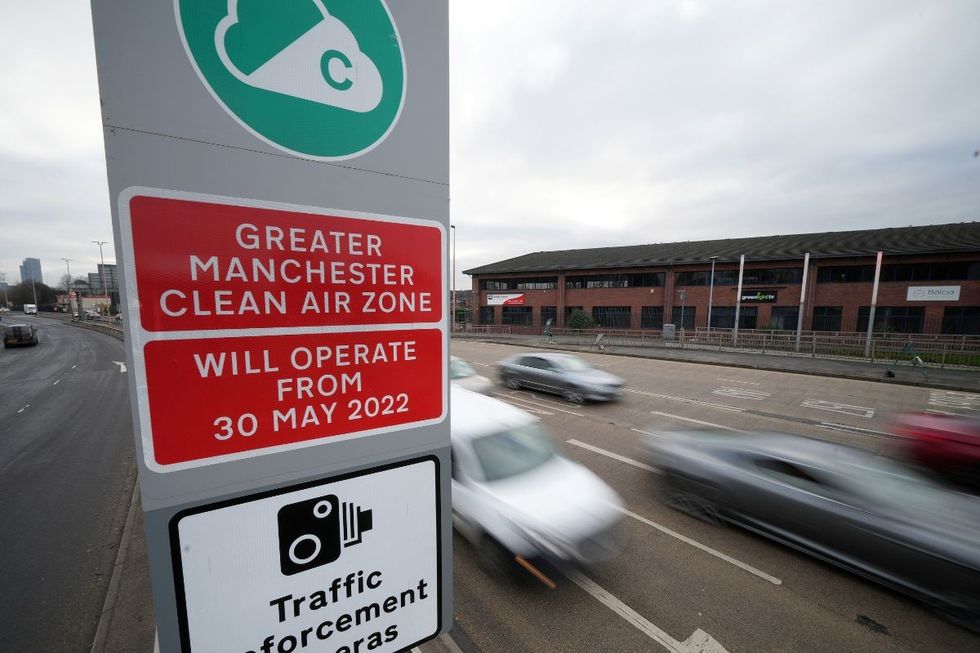 Plans for a charging Clean Air Zone in Greater Manchester were finally scrapped in January 2025 | GETTY
Plans for a charging Clean Air Zone in Greater Manchester were finally scrapped in January 2025 | GETTYLocal authorities will also have the chance to extend the emissions standards compliance date to December 31, 2026, which would give hackney carriage and private hire vehicle licence holders more time to upgrade to cleaner vehicles.
A consultation is expected to launch in September, which will ask residents whether ANPR cameras, which were originally installed to monitor pollution, should be used by Greater Manchester Police to solve serious and violent crimes.
The investment-led Clean Air Plan is expected to help Greater Manchester reach legal limits for nitrogen dioxide on local roads "as soon as possible", with the maximum deadline expected to be 2026.
Councillor O'Brien concluded: "As we deliver our Clean Air Plan alongside the Bee Network, with support from the government, we'll roll out the UK's first fully integrated, zero-emission public transport system by the end of the decade and improve the air we all breathe for generations to come."


